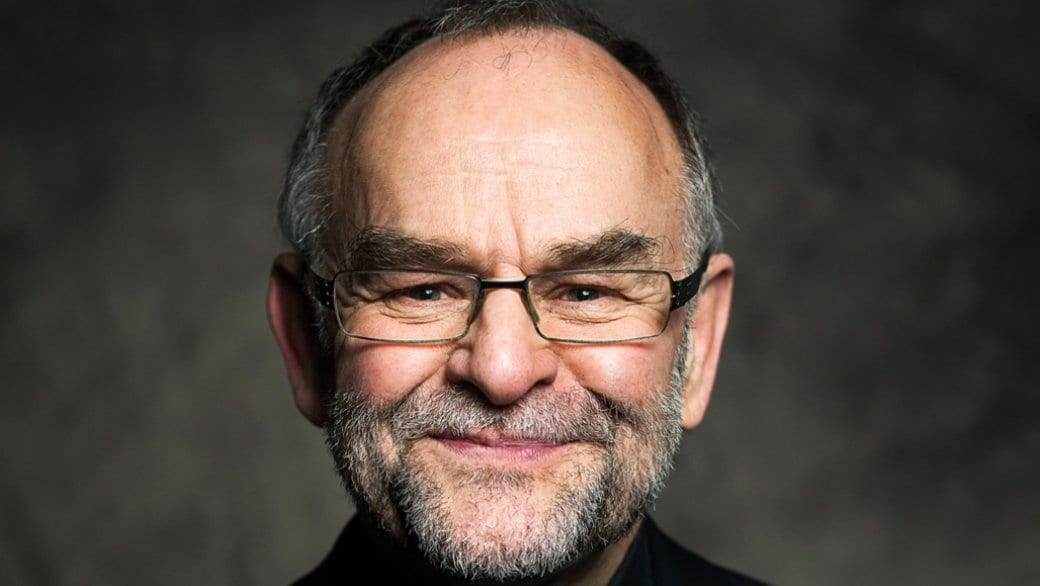The RCMP’s resurrection of an explicitly homophobic law in the charges against Brent Hawkes sets a worrisome precedent, says criminology professor Mariana Valverde.
Hawkes, who is the senior pastor at the Metropolitan Community Church of Toronto, was charged with indecent assault and gross indecency in December 2015. The charges relate to his time living in Nova Scotia in the 1970s. He has denied the charges and very few details are public at this time.
Indecent assault and gross indecency are no longer in the Criminal Code. At the time, indecent assault referred to any form of sexual assault that did not involve vaginal or anal penetration and was a precursor to modern-day sexual assault laws.
Gross indecency however was an intentionally vague charge that was used almost exclusively to prosecute gay men engaged in sexual activity, says Valverde, who teaches at the University of Toronto.
“The history of the gross indecency section of the Criminal Code is as nasty and as against the spirit of the Charter of Rights as you could possibly imagine,” she says.
Gross indecency was a crime in the original 1892 Canadian Criminal Code. The original language referred solely to acts between two men. However, the statute did not describe what an act of gross indecency actually was.
“There was no definition of what counted as gross indecency and it was interpreted as any erotic contact between two men,” Valverde says.
Gross indecency was much easier to prove than other homophobic crimes such as sodomy or buggery because it didn’t require penetration to have taken place.
“Two men kissing wouldn’t be sodomy, but two men kissing was gross indecency,” she says. “Which is why in England, and especially in Canada, police forces went around arresting two men who might have been necking behind the bush in a park.”
In 1969, the Pearson government passed legislation which added exceptions to the law around gross indecency.
Two men, if they were both over the age of 21, could engage in consensual sexual contact as long as it was private. However, if even a third person was present, the act was considered public, and therefore all parties could still be charged with gross indecency.
For a decade and half more, gay men were still charged with gross indecency for entirely consensual acts.
For instance, 30 men were charged with gross indecency in Orillia, Ontario, in 1983 after police videotaped men cruising in an opera house washroom.
The statute was finally taken out of the Criminal Code in 1985.
Gross indecency today
In recent years, police and prosecutors have charged a number of serial pedophiles with gross indecency if their crimes dated back before 1985. This is even in cases where the victims were female, though before 1985, gross indecency was rarely applied to heterosexuals.
The charge allows prosecutors to get a conviction with a lower burden of proof than other charges such as buggery.
In 2014, Gordon Stuckless, an admitted serial pedophile, was convicted of two counts of gross indecency, but was acquitted of two counts of buggery.
Brent Hawkes
Valverde says she was shocked when she saw that Hawkes was charged with gross indecency.
“I just don’t see any possible justification why anybody would bring up a section of the Criminal Code with such a bad history,” she says.
Charging someone with gross indecency today brings up a number of potential complications.
Because the age of consent was 21, anyone under that age could have been considered a minor unable to consent at the time.
A spokesperson for the Nova Scotia RCMP tells Daily Xtra that they are unable to reveal the age of the alleged victim at this time, but confirmed that it could be anyone up to the age of 21.
Valverde says that there are a number of possibilities for why the charge is being used in the Hawkes case.
“They often charge people with three different things for the same crime, that’s very common,” she says. “So they can plea bargain, or they can have some bargaining power.”
Valverde says that once details about the case emerge, the most important question will be if the alleged sexual activity that took place would be legal today.
“And if it is legal now, then you really have to wonder about the prosecution,” she says.
Valverde worries about the precedent that using such historically homophobic charges sets.
“It sends a message to gay men, older gay men especially, that they may not have gained all of the rights they think they have gained,” she says.

 Why you can trust Xtra
Why you can trust Xtra


